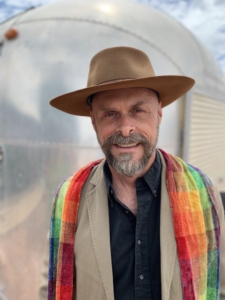The Zero Sum of All Fears
The title of this reflection is the zero Sum of All Fears. Although it is in part based on a movie title, any relation to the movie is accidental. I never saw it. What I am going to talk about is what is commonly known as zero sum thinking or logic. I believe that term comes from a description of logic that if you’re situation is getting worse, it is because someone else’s is getting better. It is as if there is only so much goodness in the world, and you need to get some back from those getting more than their fair share. In other words you must get even.
This reflection is also based on Rev. Ron’s description of salvation as freedom from fear. Fear is an evolutionary capability. It helps us avoid danger. However, when it takes over, and overwhelms us, we are sometimes prevented from living, thinking, and responding rationally. It then does not help us to live, it gets in the way of life. It paralyses us from action when we want and need to act. It can even have a deleterious effect on our health. Much fear has its origins in zero sum thinking. This reflection will be a series of stories, both fictional and nonfictional that illustrate how zero-sum thinking, inappropriately applied, is harmful to who we are, and prevents us from living.
One of the ways we know who we are is through the stories we tell: the stories we hear, the stories we tell others, and the stories we remember. We sometimes can learn more by focussing on the meta-story, i.e., the story about the story.
Fear is a powerful motivator. Perhaps the following will illustrate how powerful. There was a well known study, which I will summarize. Monkeys were placed in an enclosure with a ladder leading up to a bunch of bananas. The monkeys ascending the ladder and reaching for the bananas were given a slight electrical shock, enough to deter them from getting the banana. After a while the monkeys stopped trying to reach the bananas. New monkeys were introduced into the enclosure. When the newcomers tried to go up the ladder, the veteran monkeys, who experienced the shock, stopped them. Eventually the new monkeys were able to ascend the ladder, get a banana and return with their prize to enjoy it. The veteran monkeys watched these newer monkeys do this over and over again. Soon the monkeys who had originally been shocked, too, ascended the ladder and returned with bananas unshocked. Their behavior soon matched the newer monkeys with one difference. When the shocking began again the newer monkeys had to be shocked several times before they stopped trying. The veteran monkeys had only to be shocked one time, or just see another monkey shocked to stop trying for the banana. Fear creates a powerful and long lasting memory.
Another story, that of the good samaritan, has lasted through many different eras of human history. It dates back to the stories attributed to Jesus. You might say that the meta story about this story is its endurance. It is still told and used to illustrate points about ethics and morality. In it, a Samaritan, a group that Hebrews generally were not friendly nor cooperative with, encounters a Hebrew man who had been beaten and robbed. The Hebrew crime victim had been passed by other Hebrews who did not stop to help nor even ask what was wrong with him. The Samaritan helped the man to an inn, had him cleaned up and bandaged, and left money with the innkeeper so the crime victim would have time to recover and eat. I think the reason that this story, and other stories are so durable, are their connection to values people want to endure. These stories help create the kind of world we want to live in. Namely, that we survive through cooperation, and given the choice to look at the world as a place of scarcity or a place of abundance, we choose abundance.
A somewhat humorous example of zero sum thinking is actually a joke about communism in Russia. It may not really say as much about communism as it does about Russian culture, but that’s not the point. In any case it’s a story about a man in Russia who decides he is going to better himself. Instead of drinking his weekly allotment of vodka he saves it each week, and when he has enough he goes to the market with it and sells it. He does this a number of times until he has enough money to buy himself a goat. He milks the goat so besides selling his vodka allotment he is able to sell the goat milk as well. Soon he is able to save enough to get a second goat, and then he is able to make money much more quickly. He then has enough money to put a new porch on his house where he can sit out in the evening and drink tea and watch the sun set. His neighbors are alarmed to see him doing so much better than they, and so they ask him how he does it. He shows them the goats and explains how he is making extra money by selling the milk on the side. So the neighbors decide that they should do something too. The next night they sneak out and kill their neighbors goats.
I also have a very personal story. In a way it is about getting even. Getting even is a form of zero sum logic. This story is not one that I tell often, because it is difficult emotionally to recall. Nevertheless, it is a part of me, and relates to the topic of today’s reflection. On August 18, 1978, my wife and I had just finished having a large breakfast in town, and my wife called my mother to check in with her. I could tell that my wife was having difficulty understanding my mother because my mother was very upset. My mother told my wife that my uncle had been murdered. That day was my cousin Leslie de Leeuw’s birthday, her father, Karel,had been murdered. Leslie, and her husband had been in Big Sur and were on their way up to Santa Cruz to visit my mother. My mother asked that I try to find my cousin before she heard something on the radio as it was already on the news. I drove around Santa Cruz feeling as if I was going to be sick. But I did not find her. When I went up to my Aunt’s house and looked at my cousin, I could see the pain in her face as she shook her head in disbelief. I will never forget that look.
A man named Theodore Streleski, who had been a grad student in mathematics at Stanford for 19 years (which is a whole other problem), decided that he had enough. He felt the stagnation of his life was the fault of the mathematics faculty, and he went onto the campus to confront his adviser. His adviser was not present, but my uncle was. My uncle Karel was grading papers with his back to the office door. He probably never saw Streleski nor knew what hit him. Streleski had brought hammer with him to the campus to confront his adviser. Streleski covered Karel’s head with a garbage bag so that whoever discovered the body would not be upset by its appearance.
This experience was horrific for me. I had a difficult time coming to grips with it. I was angry and sad. I have to admit that I had visions of killing Streleski. Streleski pled guilty and was given a 7 year prison sentence. Later, at a party at my house, a friend of a friend approached me. He had heard about my uncle. He told me that he knew people in the Aryan Brotherhood who could have Streleski killed in prison if I wanted. My immediate response was “no” I do not want that. Aside from the fact that I’m Jewish, and do not think an alliance between me and the Aryan Brotherhood is a good idea, my first reaction was that killing Streleski would not bring Karel back. In spite of the visions, anger, and sadness, I did not see killing Streleski as closure, or healing in any way. Although I had emotional feelings towards revenge, I also had an emotional revulsion about taking another person’s life. Revenge is a form of getting even, zero sum thinking. It is saying that you take something from me, and I will take something from you of equal or greater value to make up for my loss. Streleski, for example, thought he was getting even. Getting even is at the root of what I believe to be many ills that face us as human beings.
As with the story about my uncle, we also share stories based on objective events. One event we share is the attack on the world trade center on September 11, 2001. It’s impact on me was tremendous, almost as powerful as the murder of my uncle. I had heard of suicide bombers before. I felt like I understood who they were. I believed that we, the US and European countries, were addressing the circumstances that led to suicide bombers. It seemed we were working to bring about peace in the region, and working to improve education and economics in the region as well. I thought that all suicide bombers were uneducated, poor people. They were susceptible to believing they would be better off in the next life. Being martyred for Allah would bring a reward. I believed that all suicide bombers had nothing else in their lives to look forward to.
As it turned out the people who flew planes had been living in our country for several years. They had experienced a middle class existence. They were not uneducated. Their behavior and activity did not arouse suspicion on the part of their neighbors. In a sense, they were exactly the opposite of what my understanding of who a suicide bomber was. Yet they chose to commandeer commercial passenger aircraft filled with innocents, and fly them into buildings filled with people. As a result, they died, and took thousands of lives with them. I had no bearing nor experience that helped me understand the suddenly alien world I was in. I had been living in a world where that sort of behavior should not have happened. But it happened anyway. What kind of compass could I use to move forward. The one I had up to that point had broken. I was unaware that they had concerns about their status in the world, and what they saw as a disappearing way of life. They associated their awareness of life in the west as a rise in wellbeing and power there was at the expense of Islam. In other words, they feared that the life they valued was at risk. The enemy was the west, which was presented to them as being at war with Islam.
Another story, that we all share, based on shared events, is the last presidential election. I was aware of people who were extremely prejudiced. I had exchanged comments about internet news stories with people who believed that treating other people with respect was something that freedom loving Americans should not have to do. These people called treating people with respect political correctness and disdained it. I did not see these people as a majority, nor even a sizeable minority of the population. It was obvious that some people did not accept that minority populations of racial and ethnic groups, people of different sexual orientations, and women, have as much right to be treated with respect as they. They seemed to see treating people with respect as an infringement of their freedom of expression. They resented seeing people they considered less worthy being successful. We all have to put up with situations that do not seem fair. In corporations I have seen people move ahead, who have power and authority, and who have exhibited choices and behaviors that not only do not make sense, but seem almost deliberately destructive. But by and large, I had faith in the American public. We had elected a black president. We had elected someone who was educated and spoke in thoughtful whole sentences. Although a very vocal minority had made life difficult for him, I believed the majority supported him for who he is, as well as for what he stands for.
The day after Donald Trump beat Hillary Clinton, I felt the same way I felt after September 11, 2001. The world had lost its way, and I no longer recognized it. I could no longer trust the landmarks I formerly used to navigate my way through the world. Overnight, while not meaningless, life seemed to have a majority of its meaning sucked right out of it and shot into outer space.
In both the case of September 11, and The 2016 Presidential election, meaning, which seemed to have disappeared, turned out to be merely in hiding for a while. By that I don’t mean that I do not think that both events were harmful. Far from it. I think that both events have been severe setbacks in our history. I do not mean that they were necessary, but they do make more sense now. In other words, I can think about them without feeling sick to my stomach or feeling like I need to lie down and hope that I wake up to a different world.
Both events were tied to a worldview grounded in zero sum thinking. In both the case of 9/11 and in the Trump victory I was surprised by actions of people who felt they were getting even. It is as if they were thinking that If someone is doing better than me, I have to, figuratively, kill their goats. I have to get even for past wrongs which have left me in a worse position than I think I deserve. For example, the 9/11 attackers might have thought: Muslims are not getting the respect they deserve. Perhaps they also thought: my brothers and sisters have been kicked out of a homeland that should historically belong to them. Someone should pay. The Trump voter might have thought: Instead of being better off than my parents, or even as well off, I feel like I am losing ground. In the meantime I see people doing well, who are probably getting the good life that should have been coming my way. And then the Trump voter goes on: Now I see Donald Trump telling me that he will no longer allow that to happen. Political correctness has led to an imbalance in the world, and he will fix it. Balance will be restored, and we can relive the “good old days,” when we could make jokes about people who are different, and keep them in their place. I have changed my story about the 9/11 attackers and the Trump voters to help me to humanize them, and see them as people who have been susceptible to zero sum thinking. They have acted out of fear.
But what about us? We who want the world to be more balanced. Do we have some of that zero sum thinking in us, too? Do we look at people who are better off than us, and does part of us want to see them do worse because we are hurting? Do we relish Schadenfreude (pleasure in another’s misery)? When I recently saw Trump stymied from executing his executive order on immigrants, I will admit, that besides the pleasure from seeing what I consider a harmful order being stopped, I also took pleasure in Trump’s unhappiness. I would be lying if I pretended that was not the case.
The split today is not between Republicans and Democrats, Liberals and Conservatives, left and right. It is between those who see the world largely as zero sum, and can only improve their lot through making sure less “deserving” people don’t prosper unfairly, and those who see us all in this blue boat together. None of us are purely one way or the other, but we can work to be more open to living in a world filled with people who are different than us. Our only lifesaver here is each other and we have to remember that at all costs.
I will leave you with a final story. A famous rabbi asked his students how they could tell when day has broken, and night was over. The first student said when he could tell that a tree in the distance is pear tree and not a fig tree. The rabbi said no, that’s not it. Another student said when he could tell that the animal in the distance is a goat and not a dog. The rabbi still shook his head. Another student said when he could tell if the a person walking in the distance was coming towards him or away from him. Again the rabbi shook his head. Finally, the rabbi said, you are all wrong. When you look into the face of another, and you see that person as your brother or your sister, then Day has broken, and night has ended.



